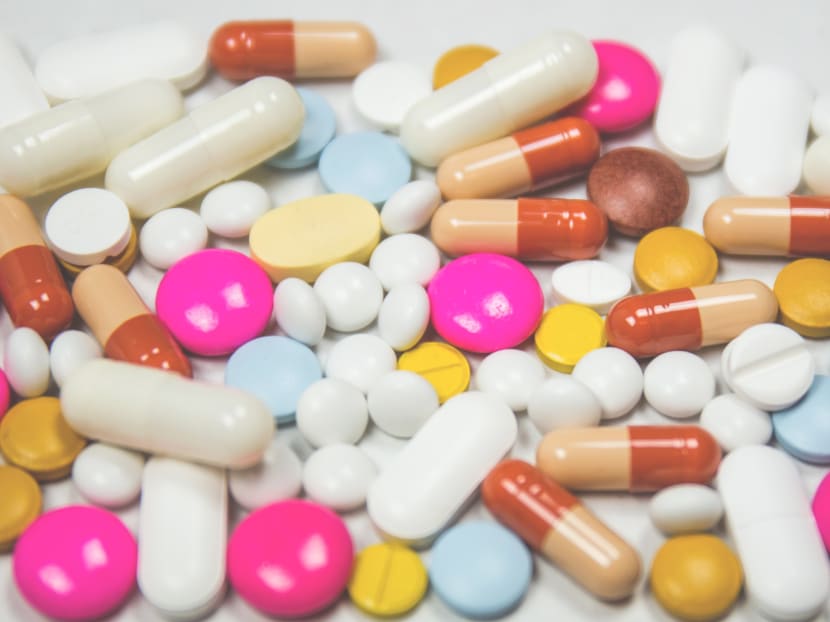Can you trust the health supplements you buy, especially online?
Every so often, I would get a text from a friend who would excitedly rave about some miracle weight-loss product, or a health super-supplement that she found while trawling online forums.
It is hard to run away from weight loss ads these days. You know, the ones that claim to help you lose 7kg in seven days.
They are everywhere you look — at bus stops, on social media, and even in the lifts of malls — and can be overwhelming, especially if you have weight issues.
Every so often, I would get a text from a friend who would excitedly rave about some miracle weight-loss product, or a health super-supplement that she found while trawling online forums. The conversation always ends the same way — me advising her that she should know better. Such claims are usually hyperinflated, and there are risks when results are too fast to be true.
It is easy to say: “We should know better”. Yet there have been many reports of users who suffered adverse effects from using such products.
Just recently, a coffee that claimed to help weight loss was found to contain sibutramine, which is banned in Singapore as it may increase the risk of heart attacks and strokes. So, why then do ostensibly rational people still continue to buy risky products online?
The simple answer is: Because it’s easy. In less than five clicks, a bottle of slimming supplements can be on its way to your mailbox.
Price-comparison websites also make deal-hunting easier and guide shoppers to “well-reviewed” online stores offering instant and effective solutions — perfect for those seeking instant gratification. And note how they use these oh-so-slim models for the “after” pictures too.
It is hard not to be lured by claims of guaranteed results. Consumers who are not familiar with health nutrients and ingredients may not know how to verify purported medical credentials of the product.
Sometimes, such ingredients come with nasty side effects that are not even listed on the product. I shudder to think how these quick fixes can affect your overall wellbeing.
Did you know that, currently, health supplements can be imported and sold without Health Sciences Authority’s (HSA’s) approval?
It is up to the manufacturer, distributor and seller to ensure the safety and quality of health supplements. The nature of the Internet and the low barriers to entry also make it difficult for buyers to authenticate the vast number of online sellers, and the safety and quality of their products.
It’s not all bad news. Companies manufacturing in Singapore must comply with regulations.
The Singapore Food Agency has regulatory guidelines for health and nutrient claims, and HSA also mandates that manufacturers follow specific rules about general or functional health claims on health supplements. Both standards contain either a list of approved additives or prohibited ingredients.
A lot of the health supplements Singaporeans buy, however, come from beyond our shores. As consumers, we must check up on food products or health supplements if we want to shop online.
Perhaps one day, we will have a super mobile app that could help consumers easily check health claims, prohibited ingredients and regulatory standards. Until that becomes a reality, here’s my quick “CSI100” checklist before buying something you put in your mouth and ingest:
Is the seller credible?: If the store has no ratings or reviews, it should be a big red flag. If it has too many reviews that look the same, it should also raise flags. Do they sell any other products? Does the seller try to allay your concerns? This will give you an indication of its credibility.
What is its source?: When looking at medical or health products at either an online or a brick-and-mortar shop, you should ask where is the product sourced from.
If this is unknown or unfamiliar to you, refrain from buying. When there is uncertainty as to the origin of the products, or the conditions under which they were manufactured and stored, traceability will be a challenge.
Be more careful when buying products from overseas websites because what is approved for sale in its country of origin might not be approved for use locally. Whenever possible, look for products that have been certified or endorsed by international bodies such as USDA Organic, ISO 22000 and HACCP.
Although they do not guarantee that the product is safe or effective, they indicate that it has undergone some degree of quality testing.
The longer the ingredients list, the higher the risk: This is one time consumers should be wary of “extra ingredients” being added to fortify their food or health products.
The more complex the ingredients list, the higher the likelihood of some unwanted side effects. Nutrient-ingredient interactions may pose more risks to consumers who are pregnant, immuno-suppressed, the elderly with medical conditions and toddlers.
No product is risk-free. Online sellers who claim that their products are "100 per cent effective" or "100 per cent safe" are usually not 100 per cent honest.
Always be wary of promises of quick and guaranteed effects. Online sellers often employ gimmicks to influence purchase decisions.
Do also take personal testimonials with a pinch of salt, as what works for one may not be effective for all. Reviews and feedback left at online chat rooms and forums about the efficacy of products purchased from the Internet should always be regarded with some cynicism.
Let’s not be tempted by easy, super-fast fixes. Pause and question if it might be too good to be true.
ABOUT THE AUTHOR:
Dr Gan Heng Hui is Senior Specialist (Food Chemistry & Safety) and Senior Lecturer at Nanyang Polytechnic’s School of Chemical & Life Sciences.







